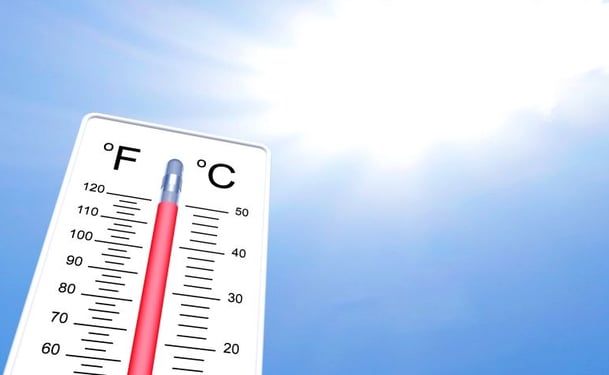Do you live in a region that is extremely hot or cold? Have you thought about the effect this could have on your kidneys? The two don’t seem to relate but, according to a recently published study, climate change might be partly to blame for the 10 percent of the U.S. population who suffer from kidney stones.
After looking at temperature data and a database of insurance claims of more than 60,000 patients in five large metropolitan areas (Atlanta, Dallas, Chicago, Los Angeles and Philadelphia), researchers at Children's Hospital of Philadelphia found that there were more cases of kidney stones in the 20 days after average daily temperatures surpassed 50 degrees Fahrenheit, with the highest spike of cases taking place within three days of the warmest days recorded.
Interestingly, despite making a connection between hot weather and kidney stones in Atlanta, Philadelphia, Chicago and Dallas, a firm link could not be found in Los Angeles. Researchers were unable to determine why the City of Angels was exempt.
When it came to cold temperatures, the risk for kidney stones also rose, but only in Atlanta, Chicago and Philadelphia.
They are not the first to make this connection. In a study from 2008, researchers suggested that instances of kidney stones can go up by at least 30% by 2050–that's another 1.6 to 2.2 million additional cases.
Why Would Extreme Temperatures Lead to Kidney Stones?
As to what might be causing this, the researchers hypothesize that hot weather can lead to dehydration, which in turn can cause calcium and other minerals to form in the urine, thus resulting in kidney stones.
Researchers also say that cold weather may cause people to remain indoors, where they eat more, drink less water and exercise less. Without exercise and water to flush the urinary tract system, the high intake of food can cause minerals to build up in the urine, leading to kidney stones.
The findings are relevant, seeing as though temperatures have continued to rise worldwide over the last decade, and warmer years are expected in the future.
How to Prevent Kidney Stones
If researchers are right, kidney stones may become more common; that is, if individuals don’t take the necessary precautions.
Here are some tips on how to prevent kidney stones:
- Drink more water, especially during warm weather – When it’s hot, our bodies sweat, but in doing so we lose water and less urine is yielded. With less urine produced, the frequency in which we urinate is lessened. This can cause minerals to settle in the urine and harden into stones. By drinking more water, urination is increased and minerals are flushed out rather than settling. Doctors recommend that you pass about 2.5 liters of urine per day.
- Drink coconut water and fresh lemonade – Coconut contains 94 percent water and has potassium, magnesium and manganese. These three minerals are essential to kidney health. Lemons, on the other hand, are high in citric acid, which is believed to break down calcium and other components that lead to kidney stone formation.
- Eat fewer oxalate-rich foods – Rhubarb, beets, chocolate, okra, spinach, sweet potatoes, nuts, tea, grains, legumes, soy and Swiss chard may all be healthy, but when consumed in large amounts these oxalate-rich foods cause calcium to bind, which can lead to kidney stones.
- Reduce sodium and limit the amount of animal protein in your diet – A high-sodium diet can lead to dehydration and can boost the amount of calcium in your urine. By reducing the amount of sodium you consume to between 1,500 and 2,300 mg, you can reduce your risk of developing kidney stones. As for animal protein, red meat, eggs, seafood and poultry increase the amount of uric acid in urine and reduce levels of citrate. Citrate is a chemical in urine that assists with breaking down minerals in the urine.


